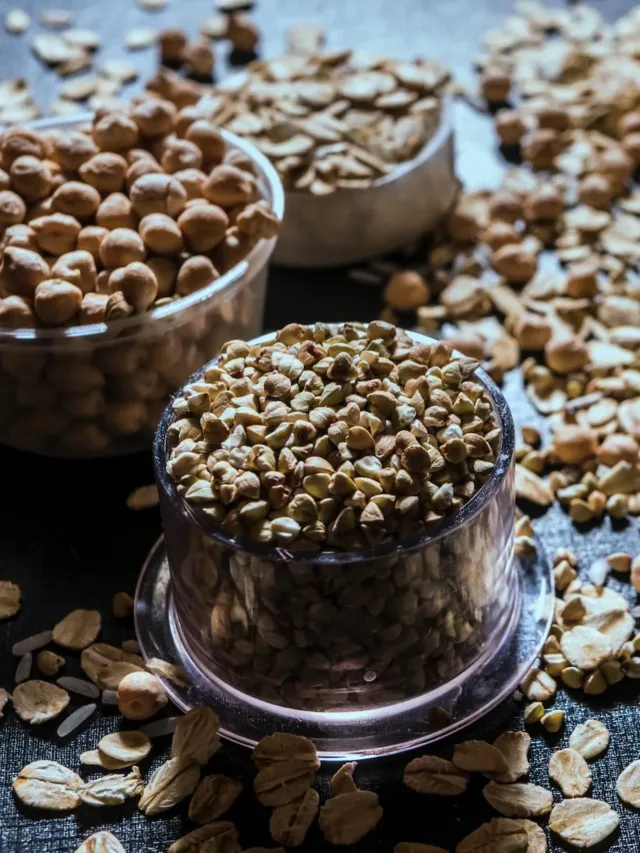Which Indian Food Grain is the best for your heart?
Food grain plays a crucial role in heart health. Whole grains are rich in soluble fiber, which helps lower LDL (bad) cholesterol levels by binding to cholesterol in the digestive system and aiding its removal from the body. This reduces the risk of arterial plaque buildup. Additionally, high-fiber foods help regulate blood sugar levels, reducing the risk of type 2 diabetes, a major heart disease risk factor. Some grains, like barley and oats, contain compounds that may lower blood pressure, further supporting heart health. The antioxidants and phytochemicals in certain grains help protect the heart from oxidative stress and inflammation, both associated with heart disease. Low glycemic index grains stabilize blood sugar, and omega-3-rich grains like flaxseed and chia seeds offer further heart-protective benefits. Grains are essential components of a heart-healthy diet when combined with other balanced, nutritious foods and a healthy lifestyle.
What makes a food grain good for heart?
A food grain is considered good for heart health when it possesses certain characteristics and nutritional qualities that support cardiovascular well-being. Here are the key factors that make a food grain heart-healthy:
High in Soluble Fiber: The grain is rich in soluble fiber, such as beta-glucans, which helps lower LDL (bad) cholesterol levels by binding to cholesterol in the digestive system and promoting its excretion from the body. This reduces the risk of arterial plaque buildup.
Low Glycemic Index (GI): A low GI indicates that the grain is digested and absorbed slowly, leading to gradual increases in blood sugar levels. Foods with a low GI can help regulate blood sugar, reducing the risk of type 2 diabetes, a significant risk factor for heart disease.
Rich in Antioxidants and Phytochemicals: The grain contains antioxidants and phytochemicals that help protect the heart from oxidative stress and inflammation, both of which are linked to heart disease.
Blood Pressure Regulation: Some grains may contain compounds that help lower blood pressure, contributing to better heart health.
Omega-3 Fatty Acids: Grains with omega-3 fatty acids, such as alpha-linolenic acid (ALA), offer heart-protective benefits, including reducing the risk of arrhythmias, reducing inflammation, and improving blood vessel function.
Weight Management: The grain is filling and contributes to satiety, which aids in weight management. Maintaining a healthy weight is crucial for heart health, as obesity is associated with an increased risk of heart disease.
Whole Grain Status: Whole grains, in their unprocessed form, retain their full complement of nutrients, including fiber, vitamins, and minerals. Consuming whole grains is preferable to refined grains, which have had some of these essential nutrients removed during processing.
Low in Saturated Fat: The grain itself is naturally low in saturated fats, as a high intake of saturated fats is linked to increased heart disease risk.
Versatility and Palatability: A heart-healthy grain is versatile and can be incorporated into a variety of dishes, making it easier to include in a balanced diet. It is also palatable, ensuring it can be enjoyed as part of regular meals.
Which Indian food grain is the best for heart?
Here are some of the best Indian food grains that are known for their heart-healthy qualities.

Barley (Jau): Barley is a high-fiber grain with around 17.3 grams of fiber per 100 grams. It is known for its potential to lower LDL cholesterol and regulate blood pressure. Barley is a nutrient-dense grain, providing essential vitamins and minerals.
- Fiber Content: Barley is high in fiber, containing about 17.3 grams of fiber per 100 grams.
- Heart Health Benefits: Barley’s high fiber content aids in lowering LDL cholesterol and regulating blood pressure. It also provides essential nutrients like beta-glucans and antioxidants.
Whole Wheat: Whole wheat is a significant source of fiber, supporting digestion and heart health. It is a versatile grain used in an array of foods, from bread to pasta, and is enriched with essential nutrients.
- Fiber Content: Whole wheat is a good source of fiber, with approximately 12.2 grams of fiber per 100 grams.
- Heart Health Benefits: Whole wheat is rich in fiber, vitamins, and minerals. It helps lower LDL cholesterol and supports digestive health.

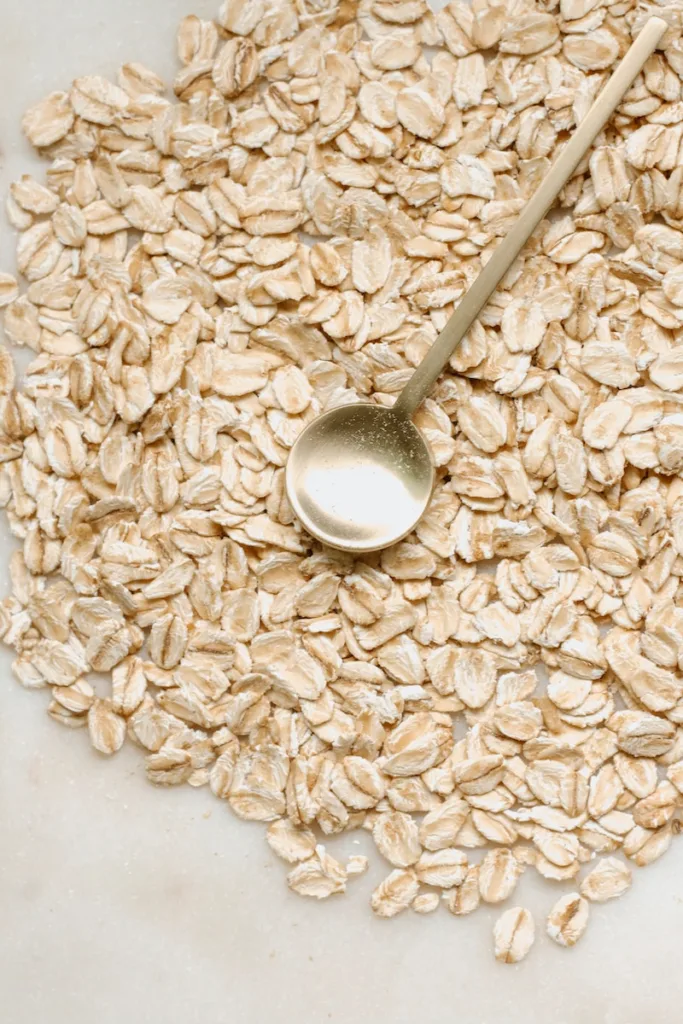
Oats: Oats are celebrated for their exceptional soluble fiber content and their potential to lower LDL cholesterol levels. They are versatile and offer a rich source of antioxidants and essential vitamins, making them a nutritional powerhouse for a variety of dishes.
- Fiber Content: Oats are exceptionally high in soluble fiber, providing approximately 10.6 grams of fiber per 100 grams. This makes them a superb choice for lowering LDL cholesterol levels.
- Heart Health Benefits: Oats are renowned for their ability to reduce LDL cholesterol, support blood sugar regulation, and promote a healthy weight. They are also rich in antioxidants and vitamins.
Buckwheat: Buckwheat is a gluten-free grain celebrated for its high fiber content, making it an excellent choice for digestive health. Its versatility in cooking and its potential to aid cholesterol management contribute to its popularity in various dishes.
- Fiber Content: Buckwheat offers approximately 10 grams of fiber per 100 grams.
- Heart Health Benefits: Buckwheat is a gluten-free grain known for its high fiber content, supporting digestive health and potentially aiding in cholesterol management.


Quinoa: Quinoa offers approximately 2.8 grams of fiber per 100 grams. While not as fiber-rich as some grains, it is a complete protein and contains heart-protective nutrients, including vitamins and minerals. Its versatility makes it a valuable addition to a heart-healthy diet.
- Fiber Content: Quinoa provides about 2.8 grams of fiber per 100 grams.
- Heart Health Benefits: While quinoa is not as fiber-rich as some other grains, it is a complete protein and contains heart-protective nutrients. It’s versatile and can be part of a heart-healthy diet.
Amaranth (Rajgira): Amaranth is recognized for its robust nutrient profile, including dietary fiber, antioxidants, vitamins, and minerals. Its fiber content supports digestive health and may contribute to overall well-being.
- Fiber Content: Amaranth is relatively high in fiber, offering approximately 7 grams of fiber per 100 grams.
- Heart Health Benefits: Amaranth is packed with antioxidants, vitamins, and minerals. Its fiber content supports cholesterol management and overall cardiovascular health.

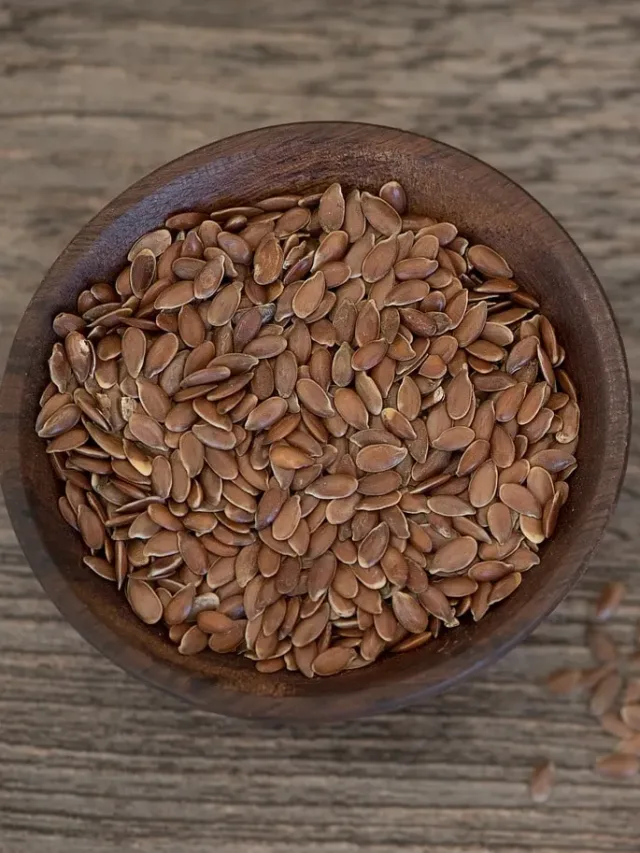
Flaxseed (Alsi): Flaxseeds are rich in fiber and ALA omega-3 fatty acids, providing heart-protective benefits. They are known for their role in digestive health and cholesterol management, and they can be easily added to a variety of foods.
- Fiber Content: Flaxseeds are a good source of fiber, with about 27.3 grams of fiber per 100 grams.
- Heart Health Benefits: Flaxseeds are high in ALA omega-3 fatty acids, which have heart-protective properties. Their soluble and insoluble fiber content supports digestive health and cholesterol management.
Brown Rice: Brown rice is a whole grain option that offers more fiber and nutrients compared to white rice. It is an essential component of various cuisines and provides vitamins, minerals, and a heart-healthy fiber content.
- Fiber Content: Brown rice contains around 2.8 grams of fiber per 100 grams.
- Heart Health Benefits: Brown rice is a whole grain with more fiber than white rice, making it a better choice for heart health. It provides nutrients that support overall well-being.

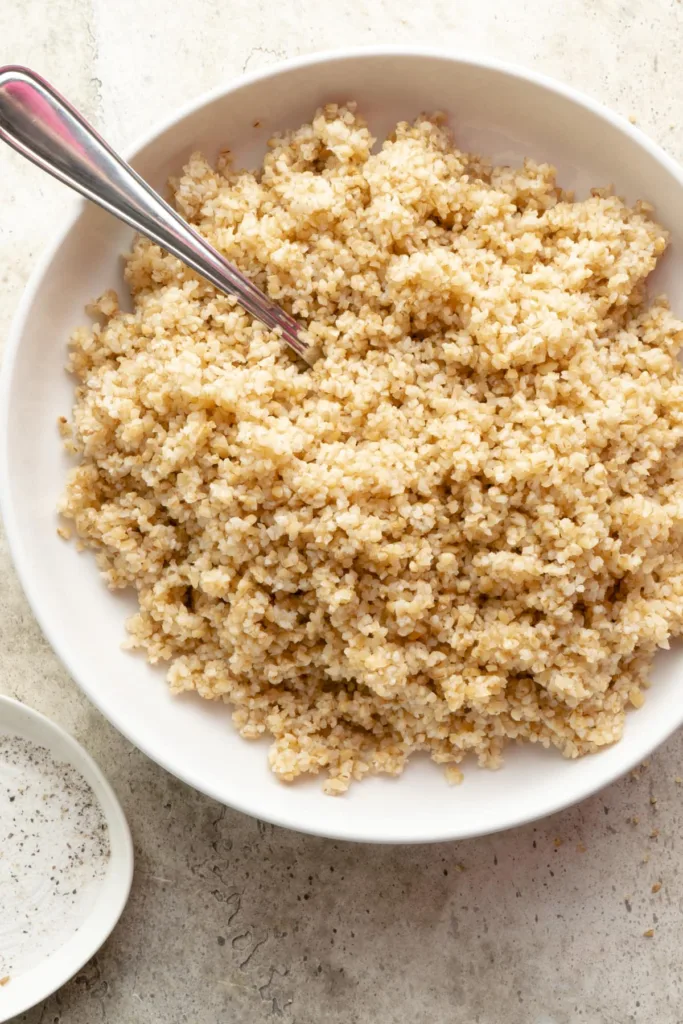
Bulgur Wheat (Daliya): Bulgur wheat is valued for its culinary flexibility and is a good source of dietary fiber. With its mild, nutty flavor, it aids digestion and may help with weight management.
- Fiber Content: Bulgur wheat has a moderate fiber content, with about 3.5 grams of fiber per 100 grams.
- Heart Health Benefits: Bulgur is a versatile grain with a mild, nutty flavor. Its fiber content supports cholesterol management and satiety.
Wild Rice: Wild rice is a whole grain with a unique texture and nutty flavor. It provides nutrients and antioxidants, supporting heart health and culinary creativity in a variety of dishes.
- Fiber Content: Wild rice is a moderate source of fiber, with approximately 2.7 grams of fiber per 100 grams.
- Heart Health Benefits: Wild rice is a whole grain that is rich in nutrients and antioxidants, contributing to overall heart health and well-being.

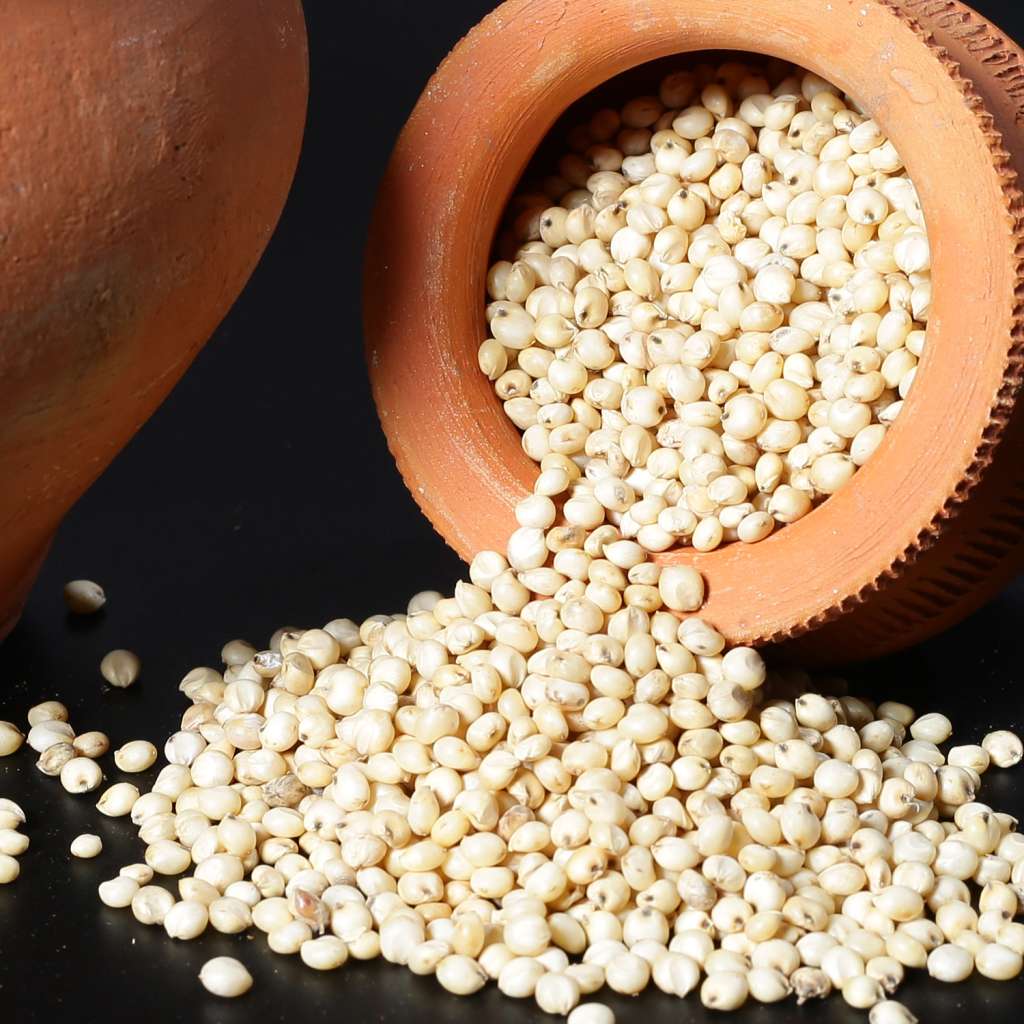
Sorghum (Jowar): Jowar, or sorghum, is a versatile gluten-free grain widely cultivated in India. It is rich in dietary fiber and essential nutrients. Jowar’s fiber content aids in digestion and may contribute to lower cholesterol levels.
- Fiber Content: Jowar is a good source of dietary fiber, with approximately 6.7 grams of fiber per 100 grams.
- Heart Health Benefits: The dietary fiber in jowar supports digestive health and may contribute to lower cholesterol levels.
Pearl Millet (Bajra): Pearl millet, or bajra, is a drought-tolerant grain commonly consumed in arid regions of India. While not exceptionally high in fiber, it serves as a staple grain and provides essential nutrients for overall well-being.
- Fiber Content: Pearl millet offers around 1.3 grams of fiber per 100 grams.
- Heart Health Benefits: While not exceptionally high in fiber, pearl millet is a staple in arid regions and provides essential nutrients.


Finger Millet (Ragi): Ragi is a nutritious grain known for its calcium-rich composition. With a moderate fiber content, it supports overall health and is a staple in regional Indian cuisine, used in various forms, including porridge and flatbreads.
- Fiber Content: Finger millet is a good source of dietary fiber, with roughly 3.6 grams of fiber per 100 grams.
- Heart Health Benefits: Ragi is packed with nutrients and can contribute to overall cardiovascular well-being.
Foxtail Millet (Kangni): Foxtail millet is a small-grained, gluten-free cereal with a mild nutty flavor. It is rich in fiber, supporting digestive health, and is used in a variety of regional Indian dishes like upma and pulao.
- Fiber Content: Foxtail millet provides about 8 grams of fiber per 100 grams.
- Heart Health Benefits: This gluten-free grain is a source of dietary fiber, essential nutrients, and antioxidants, which support heart health.


Cornmeal (Makki): Cornmeal, ground from maize (corn), provides a good dose of dietary fiber, promoting digestive well-being. Used in diverse recipes, it is a valuable ingredient in both sweet and savory dishes.
- Fiber Content: Cornmeal contains around 7.3 grams of fiber per 100 grams.
- Heart Health Benefits: Cornmeal is used in various dishes and is a good source of fiber, aiding in digestion and potentially supporting heart health.
Sama (Little Millet): Sama, or little millet, is a gluten-free grain with a substantial fiber content. Known for its nutrient richness, it supports digestion and is used in a range of traditional Indian dishes, offering both nutritional benefits and culinary versatility.
- Fiber Content: Little millet offers approximately 7.7 grams of fiber per 100 grams.
- Heart Health Benefits: Sama, or little millet, is a gluten-free grain rich in fiber and nutrients, making it a heart-healthy choice for various dishes.

These grains can be integral parts of a heart-healthy diet. Incorporating them into your meals, along with a balanced mix of fruits, vegetables, lean proteins, and healthy fats, can contribute to better cardiovascular health. Always remember to consume grains as part of a varied and balanced diet to achieve the most significant heart health benefits.


